Introduction
Welcome to our comprehensive guide on heating ventilation and air conditioning (HVAC). In this article, we will delve into the essentials of Heating Ventilation and Air Conditioning, helping you understand how they work and how to optimize their efficiency in your home. Whether you are looking to choose the right system, maintain your existing one, troubleshoot common issues, or even upgrade to the latest technology, this guide has got you covered.
Key Takeaways:
- Gain a clear understanding of how HVAC systems work.
- Learn about the different components and their respective functions.
- Discover factors to consider when choosing an HVAC system for your home.
- Find out how to improve energy efficiency in your HVAC system.
- Understand the importance of regular maintenance.
Understanding HVAC Systems
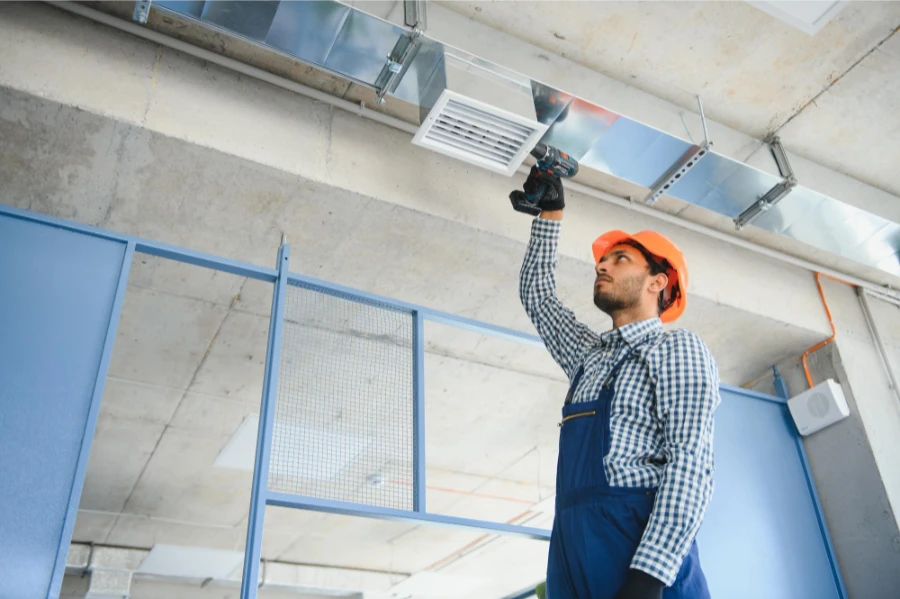
When it comes to creating a comfortable indoor environment, HVAC systems play a crucial role. HVAC systems is an acronym that stands for Heating, Ventilation, and Air Conditioning. These systems encompass a range of components that work together to regulate temperature, control airflow, and maintain optimal indoor air quality.
To truly understand HVAC systems, it’s essential to grasp the functions of each component. Let’s break it down:
Heating Units
Heating units are responsible for generating warmth during the colder months. They typically utilize furnaces or heat pumps to produce heat. Furnaces burn fuel, such as natural gas or propane, to generate heat, while heat pumps transfer heat from the outdoor air or the ground to warm up the indoors.
Ventilation Systems
Ventilation plays a vital role in maintaining indoor air quality. HVAC systems incorporate ventilation systems to ensure a constant flow of fresh air while expelling stale air. These systems remove moisture, odors, and air pollutants, promoting a healthier and more comfortable living environment.
Air Conditioning Units
Air conditioning units, commonly known as ACs, are responsible for cooling the indoor space during hot weather. AC units extract heat and humidity from the air, creating a refreshing and cool atmosphere. They use refrigerants and works on the principle of heat transfer, ensuring a comfortable indoor temperature even when it’s scorching outside.
It’s important to note that HVAC systems are designed to interplay seamlessly, ensuring the overall effectiveness and efficiency of the system. The thermostat acts as the control center, allowing users to adjust the desired temperature and regulate the system accordingly.
Having a clear understanding of HVAC systems and their components is essential for homeowners looking to maintain a comfortable living environment. Whether it’s heating, ventilation, or cooling, each component contributes to the overall efficiency and performance of the system.
By comprehending the basics of HVAC systems, you can make informed decisions about maintenance, system upgrades, and energy-saving strategies. Let’s dive deeper into choosing the right HVAC system for your home in the next section.
Choosing the Right Heating Ventilation and Air Conditioning System for Your Home
When it comes to selecting an HVAC system for your home, there are several factors to consider. By exploring different options and technologies available, understanding their benefits and drawbacks, and assessing your specific needs, you can make an informed decision that ensures optimal comfort and efficiency.
Factors to Consider
Choosing the right HVAC system involves evaluating various factors to match your unique requirements. Here are some key considerations:
- Size and Capacity: Determine the size of your home and calculate the appropriate system capacity to ensure efficient heating and cooling.
- Energy Efficiency: Look for systems with high Energy Efficiency Ratio (EER) and Seasonal Energy Efficiency Ratio (SEER) ratings to reduce energy consumption and lower utility bills.
- Technology: Explore the latest technological advancements such as variable-speed compressors, smart thermostats, and zoning systems that provide precise temperature control and enhanced energy efficiency.
- Installation and Maintenance: Consider the ease of installation and ongoing maintenance requirements to keep your HVAC system running smoothly.
- Budget: Set a budget for your HVAC system, taking into account the upfront costs, long-term savings, and potential return on investment.
Types of HVAC Systems
There are several types of Heating Ventilation and Air Conditioning systems to choose from, each with its own advantages and limitations. Here are the main options:
| Type | Description | Advantages | Limitations |
|---|---|---|---|
| Split System | Air conditioner and furnace or heat pump are installed separately. |
|
|
| Packaged System | All components (air conditioner, furnace, or heat pump) are housed in a single unit. |
|
|
| Ductless Mini-Split System | Heat pump or air conditioner with individual air handlers for each room. |
|
|
Informed Decision-Making
By considering the factors outlined above and evaluating the different types of HVAC systems available, you can make an informed decision that aligns with your home’s specific needs. Remember to consult with HVAC professionals who can provide expert guidance and help you navigate the various options.
Choosing the right HVAC system for your home ensures optimal comfort, energy efficiency, and long-term satisfaction.
Optimizing Energy Efficiency in HVAC Systems
When it comes to HVAC systems, optimizing energy efficiency is crucial for both environmental sustainability and cost savings. By implementing smart strategies, you can enhance the efficiency of your HVAC system, ensuring optimal performance and long-term benefits.
Improve Insulation
One of the key factors in energy efficiency is proper insulation. By ensuring that your home is well-insulated, you can prevent air leaks and minimize heat loss during the winter and heat gain during the summer. This not only improves the effectiveness of your HVAC system but also reduces your energy consumption.
Prevent Air Leaks
Air leaks are a common problem that can significantly impact the efficiency of your HVAC system. Sealing gaps and cracks around windows, doors, and ductwork can help prevent the escape of conditioned air and the entry of unwanted outdoor air. This ensures that your HVAC system doesn’t have to work harder than necessary, resulting in energy savings.
Employ Smart Thermostats
Smart thermostats are revolutionizing the way we control our HVAC systems. These devices allow you to program and adjust temperature settings remotely, optimizing energy consumption based on your daily routine and preferences. By intelligently managing temperature control, smart thermostats can deliver substantial energy savings without compromising comfort.
“Smart thermostats provide homeowners with an easy and effective way to optimize energy efficiency in their HVAC systems.” – Sarah Johnson, Energy Efficiency Expert
In addition to their energy-saving capabilities, smart thermostats also offer features like remote access, energy usage monitoring, and intelligent learning algorithms that adapt to your lifestyle. This technology empowers homeowners to take active control of their HVAC systems and maximize energy efficiency.
Energy-Efficient HVAC Systems
Upgrading to an energy-efficient HVAC system can result in significant energy savings while reducing your carbon footprint. These systems use advanced technologies and design principles that minimize energy waste and deliver precise temperature control.
Energy-efficient HVAC systems often include features like variable-speed motors, advanced filtration, and zoned heating and cooling. These innovations allow for more efficient operation and tailored comfort, resulting in reduced energy consumption and enhanced performance.
The Benefits
Optimizing energy efficiency in your HVAC system offers numerous benefits. Firstly, it reduces your overall energy consumption, leading to lower utility bills and long-term cost savings. Secondly, it contributes to a healthier environment by decreasing greenhouse gas emissions and conserving natural resources.
Moreover, energy-efficient HVAC systems provide improved comfort and air quality, ensuring that your home remains cozy and free from allergens. They also increase the resale value of your property, as energy efficiency is a highly desirable feature for potential buyers.
Summary
Enhancing energy efficiency in HVAC systems is essential for homeowners who seek to save money, reduce environmental impact, and improve indoor comfort. By implementing insulation improvements, preventing air leaks, and incorporating smart thermostats, you can optimize the efficiency of your HVAC system. Additionally, considering the benefits of energy-efficient HVAC systems can provide long-term cost savings, increased comfort, and enhanced environmental sustainability.
Maintaining Your HVAC System
Regular maintenance is essential for keeping your HVAC system running smoothly. By performing simple tasks yourself and knowing when to call in a professional, you can ensure that your system remains efficient and reliable.
Performing Basic Maintenance
To keep your HVAC system in good condition, there are a few simple tasks you can perform on your own:
- Clean or replace air filters: Dirty filters can impede airflow and put strain on your system. Regularly clean or replace them to ensure optimal efficiency.
- Clean the outdoor unit: Keep the outdoor unit free from debris, such as leaves or twigs, to prevent airflow restrictions and potential damage.
- Check and adjust thermostat settings: Ensure that your thermostat is set to the appropriate temperature for your comfort and energy efficiency.
- Inspect and clean air vents and registers: Dust or debris buildup can obstruct airflow, so regularly clean and remove any obstructions from vents and registers.
Knowing When to Call a Professional
While basic maintenance tasks can go a long way, there are certain maintenance procedures that are best left to professionals:
- Annual tune-ups: It’s recommended to have a professional technician perform annual inspections and maintenance to catch any potential issues before they become major problems.
- Duct cleaning: Over time, dust and debris can accumulate in your ductwork, reducing indoor air quality and efficiency. Hire a professional to clean your ducts periodically.
- Refrigerant recharge: If your air conditioner is not cooling properly, it may need a refrigerant recharge. This task requires specialized knowledge and equipment, so it’s best to call a professional.
Regular maintenance is the key to extending the lifespan of your HVAC system and ensuring optimal performance. By performing basic tasks yourself and relying on professionals for more complex procedures, you can enjoy a comfortable and efficient indoor environment year-round.
Troubleshooting Common HVAC Issues
When it comes to the proper functioning of your HVAC system, it’s essential to be aware of common issues that may arise. From insufficient heating or cooling to strange noises or odors, these problems can disrupt your comfort and impact the efficiency of your system. By troubleshooting these issues promptly, you can prevent further damage and ensure optimal performance.
Insufficient Heating or Cooling
If you’re experiencing inadequate heating or cooling in your home, there are a few potential culprits to consider. Check your thermostat settings to ensure they are correctly configured. If the temperature settings are accurate, inspect the air filters for any dirt or debris that may be blocking the airflow. A clogged filter can significantly impact the system’s performance. Clean or replace the filter as necessary. If the problem persists, it may be a sign of a more significant issue, such as a malfunctioning compressor, which requires professional attention.
Strange Noises
An HVAC system that produces strange noises can be both annoying and worrisome. Rattling, banging, or squeaking sounds may indicate loose or broken components within the system. Inspect the unit for any visible signs of damage or debris. Tighten loose screws and bolts, and clear away any obstructions. However, if the noise persists, it’s advisable to contact a licensed HVAC technician who can diagnose and resolve the issue effectively.
Unpleasant Odors
If you notice unpleasant odors coming from your HVAC system, it’s essential to address the issue promptly. Mold or mildew growth within the system can cause musty smells. Check the drain pan and condensate line for any blockages or buildup. Regularly cleaning the components and ensuring proper drainage can help mitigate this problem. Additionally, a burning smell may indicate an electrical issue or overheating. In such cases, it’s crucial to turn off the system and seek professional assistance immediately.
By troubleshooting these common HVAC issues, you can restore the comfort and efficiency of your system. However, if you’re unsure or uncomfortable performing any troubleshooting steps, it’s always best to consult with a qualified HVAC technician who can provide expert guidance and assistance to ensure the proper functioning of your HVAC system.
| Issue | Possible Cause | Troubleshooting Steps |
|---|---|---|
| Insufficient Heating or Cooling | Incorrect thermostat settings Clogged air filters |
Check thermostat settings Clean or replace air filters |
| Strange Noises | Loose or broken components Obstructions or debris |
Tighten loose screws and bolts Clear obstructions or debris |
| Unpleasant Odors | Mold or mildew growth Electrical issue or overheating |
Clean drain pan and condensate line Seek professional assistance for electrical issues or overheating |
Upgrading Your HVAC System
When it comes to improving the comfort and efficiency of your home, upgrading your HVAC system can make a significant difference. With advancements in technology, modern HVAC systems offer enhanced performance, superior energy efficiency, and improved indoor air quality. Investing in an upgraded system can provide numerous benefits that go beyond simple temperature control.
The Benefits of Upgrading
Upgrading your HVAC system comes with several advantages. First and foremost, a new system can provide better comfort by delivering consistent and even heating and cooling throughout your home. Improved airflow and temperature regulation can eliminate hot or cold spots, creating a more pleasant living environment.
Besides comfort, upgrading your HVAC system can result in tangible energy savings. Newer systems are designed to be highly energy-efficient, incorporating advanced features like variable-speed technology and programmable thermostats. These features allow for more precise temperature control and reduce energy consumption by adjusting output based on the specific needs of your home.
Lower energy consumption translates to lower utility bills, putting more money back in your pocket. Over time, the savings can add up significantly, making an upgraded HVAC system a cost-effective investment. Furthermore, energy-efficient systems help reduce your carbon footprint by decreasing greenhouse gas emissions, contributing to a more sustainable future.
Exploring the Latest HVAC Technology
The HVAC industry is constantly evolving, with new technological advancements being introduced regularly. When upgrading your system, it’s essential to stay informed about the latest innovations to make the best decision for your home.
One of the notable advancements in recent years is the rise of smart HVAC systems. These systems utilize internet connectivity and cutting-edge sensors to optimize performance and provide remote control capabilities. With a smart HVAC system, you can adjust temperature settings, monitor energy usage, and receive maintenance reminders conveniently from your smartphone or other connected devices.
Another area of innovation is in system zoning. By dividing your home into separate zones, each with its own thermostat, you can customize heating and cooling based on individual preferences and usage patterns. This zoning capability increases energy efficiency by only conditioning occupied areas, reducing unnecessary energy consumption.
The Return on Investment
While upgrading your HVAC system requires an initial investment, it offers a significant return on investment in the long run. Not only will you enjoy improved comfort and energy savings immediately, but an upgraded system can also increase the value of your home.
Homebuyers are increasingly prioritizing energy-efficient features, including upgraded HVAC systems, when searching for properties. By having a modern and efficient system in place, you can attract potential buyers and potentially sell your home more quickly and at a higher price.
| Benefit | Description |
|---|---|
| Increased Comfort | Consistent temperature control and improved airflow create a more comfortable living environment. |
| Energy Savings | Energy-efficient systems lower utility bills and reduce energy consumption, saving you money in the long run. |
| Sustainable Living | Reduced greenhouse gas emissions contribute to a more eco-friendly lifestyle. |
| Smart Technology | Smart HVAC systems offer convenience and remote control capabilities for optimal comfort and energy management. |
| Zoned Heating and Cooling | Dividing your home into zones allows for personalized temperature control, increasing energy efficiency. |
Upgrading your HVAC system is a worthwhile investment that can enhance your home’s comfort, energy efficiency, and value. By taking advantage of the latest technology and understanding the long-term benefits, you can make an informed decision that aligns with your needs and goals.
Conclusion
Throughout this comprehensive guide, we have explored the essentials of heating, ventilation, and air conditioning (HVAC) systems. By understanding how HVAC systems work, you can create a comfortable and efficient living environment in your home.
We have discussed the various components of HVAC systems, such as heating units, ventilation systems, and air conditioning units, and their roles in maintaining indoor comfort. Additionally, we have provided insights into selecting the right HVAC system for your home based on your specific needs and preferences.
Maintaining your HVAC system is crucial for its optimal performance. By following regular maintenance procedures and implementing energy-efficient practices, you can ensure that your HVAC system operates smoothly, saving both money and energy. Remember to address common issues promptly and consider upgrading your system to take advantage of the latest technologies.
In conclusion, by applying the knowledge gained from this guide, you can make informed decisions to optimize your home’s heating, ventilation, and air conditioning. Investing in a reliable HVAC system, practicing regular maintenance, and prioritizing energy efficiency will create a comfortable and sustainable living environment for you and your family.
FAQ
What is HVAC?
HVAC stands for Heating, Ventilation, and Air Conditioning. It refers to the systems used in buildings to control temperature, humidity, and air quality for comfort and safety.
How does an HVAC system work?
HVAC systems work by heating or cooling the air, filtering it, and then distributing it throughout a building. Heat is created or removed through a furnace or air conditioner, and the air is distributed through ductwork or vents.
What are the main components of an HVAC system?
The main components of an HVAC system include a furnace or boiler, an air conditioner or heat pump, ductwork or vents, and a thermostat. These components work together to control temperature and air quality in a building.
How do I choose the right HVAC system for my home?
When choosing an HVAC system, factors to consider include the size of your home, your climate, energy efficiency ratings, and your budget. It’s important to consult with an HVAC professional to determine the best system for your specific needs.
How can I improve energy efficiency in my HVAC system?
To improve energy efficiency, you can enhance insulation in your home, seal air leaks, and install a programmable or smart thermostat. Regular maintenance, such as cleaning or replacing air filters, is also crucial for optimal energy efficiency.
Why is regular maintenance important for my HVAC system?
Regular maintenance helps ensure that your HVAC system operates efficiently and effectively. It can help prevent breakdowns, extend the lifespan of your equipment, and maintain good indoor air quality. Professional maintenance should be performed at least once a year.
What are some common HVAC issues I may encounter?
Common HVAC issues include inadequate heating or cooling, uneven temperature distribution, strange noises or odors, and poor air quality. These issues can be caused by various factors, such as clogged filters, faulty thermostats, or refrigerant leaks.
When should I consider upgrading my HVAC system?
You may consider upgrading your HVAC system if it’s more than 10-15 years old, requires frequent repairs, or is not providing adequate comfort or energy efficiency. Upgrading to a newer, more efficient system can save you money on energy costs in the long run.
Which is the best software to manage HVAC business activities?
ServiceDeck is an all-in-one software to manage HVAC business activities. It can generate instant quotes, invoices, scheduling workers and more. Moreover, it’s FREE for small HVAC companies.
What our clients say
Take the next step
Explore ServiceDeck or book a demo to see how it can streamline your business and answer your questions.
Create your profile
Sign up and tell us a bit about your business.
Book your setup call
Schedule a quick onboarding session with our team.

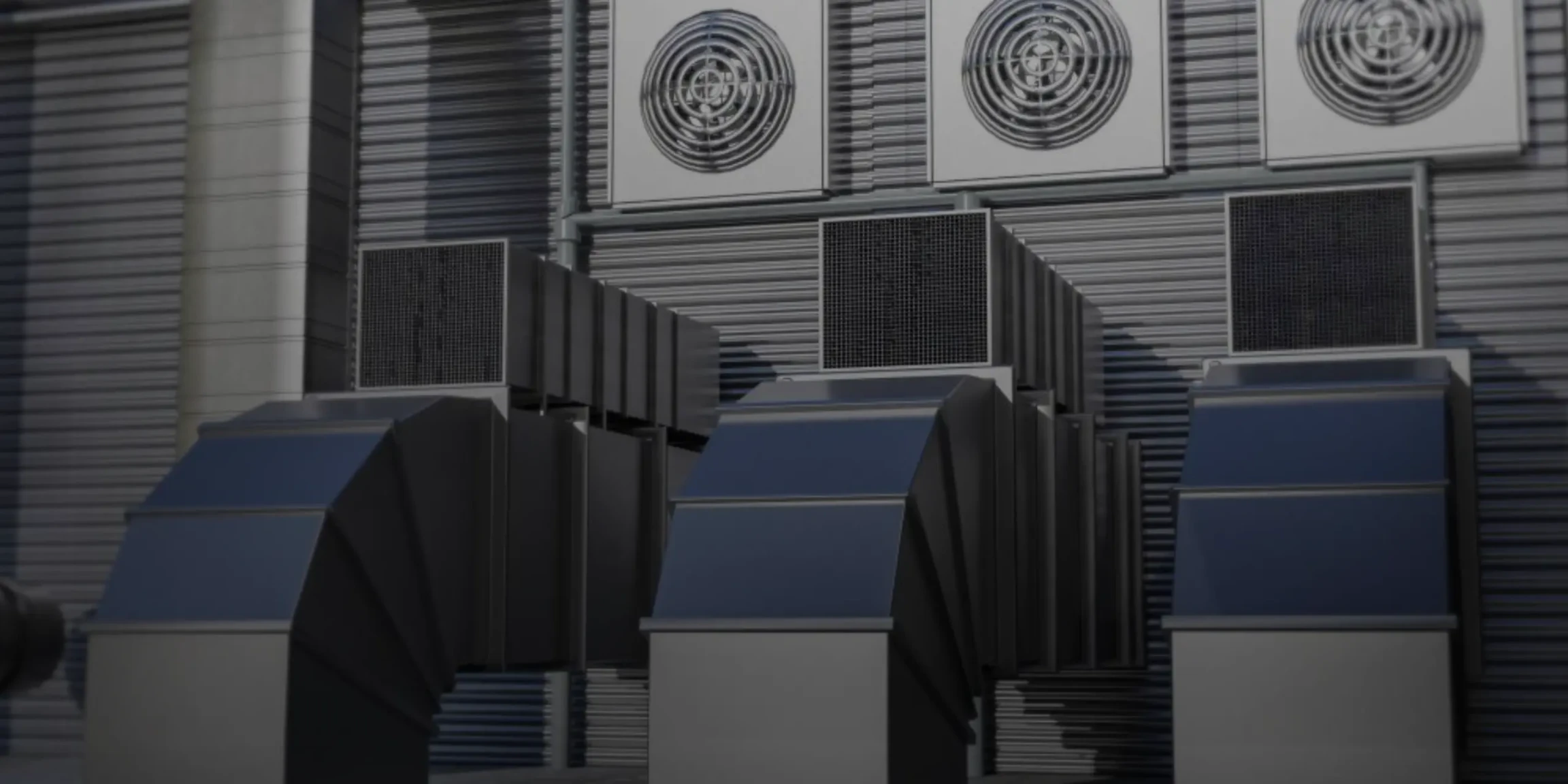
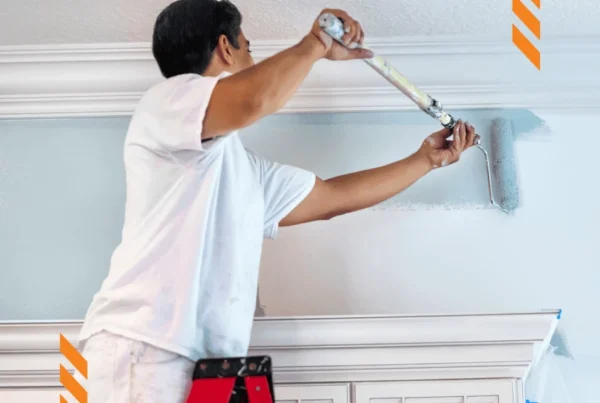
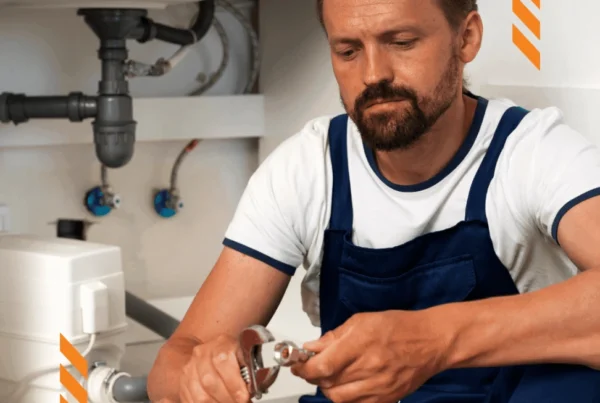
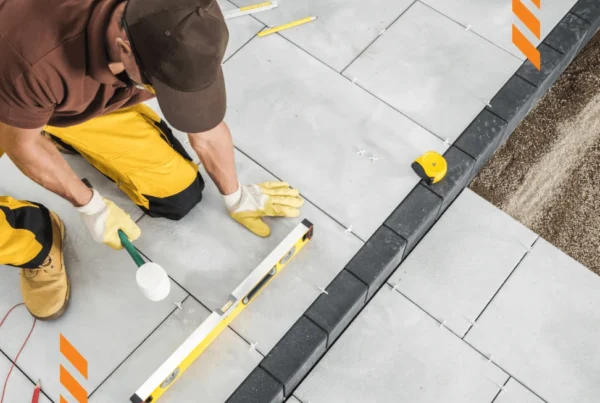

One Comment